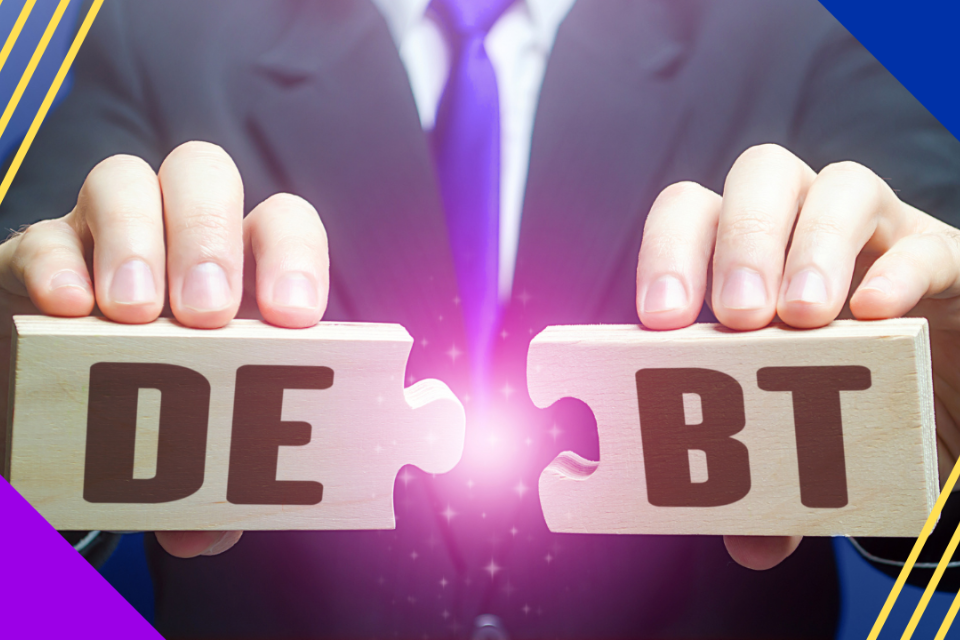It can be upsetting to get a call from a debt collection company. However, you could have to engage with a debt collection agency to pay back what you owe if you fall far behind on a loan. This article will walk you through the process of paying a debt collection agency step-by-step. But before we get started, it’s critical to comprehend the effects of outstanding bills and how they come to be handled by a collection agency.
Knowing the Procedure
1. Verify the validity of the loan.
Double-checking the debt’s accuracy is essential before making any payments. To get the relevant details regarding the debt, look at your credit reports. Make sure the debt is truly yours and that all the information is accurate because mistakes can happen.
2. Determine your financial capacity.
To find out how much you can actually afford to pay toward the debt, review your spending plan. Before contacting the debt collection agency, it’s critical to have a comprehensive picture of your financial situation.
3. Speak with the debt collection company.
It’s time to contact the debt collection agency after you’ve evaluated your financial status. Your credit reports provide their contact information. Don’t use a third party to connect with the agency; it can be expensive and could harm your credit. Instead, speak with them directly.
4. Discuss the terms of the payment.
Discuss the payment choices you have with the debt-collecting company when you speak with them. A lump-sum payment or installment payment may be your option. Paying out the full debt all at once, possibly at a lower price, is referred to as a lump sum payment. You can spread out the payback over time using installment payments. Consider which choice best fits your financial situation.
5. Demand a formal contract.
Once a payment plan has been agreed upon, request a written contract from the debt collection company. The agreement ought to specify how payments are to be made as well as any modifications that will be made to your credit reports upon payment.
6. Send your money in.
Make the stipulated payment after checking the written agreement for accuracy. Documenting the payment and keeping documentation of it, like certified postal receipts, is crucial. If you ever need to contest any future credit reporting inaccuracies, this material will be useful.
Understanding the Effects of Debt Collection and Credit
When a loan goes unpaid for a long time, debt collection companies are involved. The debt may be sold by the original creditors to debt collectors, who then make an effort to collect the money owed. Your credit scores may suffer greatly if a debt is reported to a credit bureau. Collection accounts are seen negatively and might harm your credit scores. Your credit reports normally contain information about these collection accounts for up to seven years after the account is past due.
1. Additional Points to Consider
When interacting with debt collection companies, it’s critical to understand your legal rights. Consumers are protected from harassment and other abusive tactics by debt collectors under the Fair Debt Collection Practices Act. You can file a complaint with the Federal Trade Commission, the Consumer Financial Protection Bureau, and your state’s Attorney General’s office if you think a debt collector has violated your legal rights.
In order to make decisions that are in line with your rights and financial objectives, it might be beneficial to obtain advice from credit counselors and attorneys during these conversations and negotiations.
2. Final Reflections
It might be difficult to deal with debt collection agencies, but neglecting the problem will only make it worse. It’s critical to face your debt head-on and create a repayment strategy. You can make a payment to a debt collection agency more successfully if you adhere to the instructions provided in this guide. Do not forget to verify the authenticity of the debt, assess your financial situation, negotiate payment terms, formalize your agreements, and make the agreed-upon installments. Proactively managing your debt will help you achieve financial stability and gradually repair your credit.
If you have strong credit and can receive a low-interest auto loan, it would be better to invest your money. If the return on your investment outpaces the loan’s interest rate, you could be able to profit.
3. Discounts and Financing
Car dealers frequently provide exclusive financing choices and cash-back or rebate incentives when financing through the automaker’s financing company. Think about whether using cash has advantages over these options that outweigh the possible savings.
How Can I Purchase a Car with Cash?
If you decide to pay cash for a car, the process will differ based on the vendor. Whether you’re buying from a dealer, a private seller, or at an auction, you’ll generally need a cashier’s check to complete the transaction. Once you’ve settled on the purchase price after some negotiation, request a cashier’s check from your bank or credit union.
It’s important to keep in mind that if you pay cash and the automobile costs more than $10,000, the dealership must notify the IRS of the transaction. You might therefore have to complete more documentation at the dealership as a result.
Future Steps
It’s crucial to carefully evaluate your financial situation and determine which payment option best meets your goals before deciding how to pay for your new car. If you think a car loan is your best option, think about getting preapproved before going car shopping. This gives you the option to shop as though you were paying cash while still having financing options.
Spend some time comparing interest rates, loan conditions, and promotional offers from several lenders to ensure you’re getting the best deal. In the end, your own financial condition and long-term goals will determine whether you decide to pay cash for the car or take out a loan.
